Announcer:
The following program is a PBS Wisconsin original production.
Tony Evers:
In this biennium, we’re in the best fiscal position we’ve ever been in our 175 years of statehood.
Frederica Freyberg:
Governor Tony Evers delivers his 2023 state budget address. The primary election for state Supreme Court is on Tuesday and despite their struggles, Ukraine refugees work hard in their new surroundings.
I’m Frederica Freyberg. Tonight on “Here & Now,” we hear from top lawmakers on both sides of the aisle as the months long budget process gets underway. Zac Schultz reports on how a sitting state supreme court justice who hasn’t endorsed a candidate is having such a big impact on Tuesday’s primary and Steven Potter speaks with Ukraine refugees resettled in Wisconsin. It’s “Here & Now” for February 17.
Announcer:
Funding for “Here & Now” is provided by the Focus Fund for Journalism and Friends of PBS Wisconsin.
Frederica Freyberg:
Governor Tony Evers has proposed the largest budget in state history with historic investments in public schools and local government.
Tony Evers:
We carry the weight of posterity. While we must find ways to save when we can, we have a duty to invest in needs that have been long neglected.
Frederica Freyberg:
Wisconsin’s $7 billion budget surplus is fueled in part by the fact Republicans in the Legislature and Governor Evers could not agree on how to spend the surplus two years ago. Now Evers says the state needs to make up for lost time and he’s proposing an additional $2.6 billion investment in K-12 education over the next two years.
Tony Evers:
Tonight I’m calling on the Legislature to join me in doing what’s best for our kids by approving the largest increase in K-12 schools and education in our state’s history.
Frederica Freyberg:
That includes $1 billion in additional aid to schools including revenue boosts of $350 per pupil in the first year of the budget and an additional $650 in year two. Historically the state has struggled to pay for two-thirds of public school costs as promised but this budget would put state funding eight points above that. Evers would also invest an extra $1 billion into special education funding and $270 million for student mental health.
Tony Evers:
Let’s make sure every kid in Wisconsin has access to school-based mental health services.
Frederica Freyberg:
The budget would include a permanent boost to funding for local governments using an idea Republicans have complained Evers took from them.
Tony Evers:
Last month I pledged my support for a budget provision to send 20% of the state sales tax revenue back to our local communities for shared revenue and I’m excited to share that our budget includes that proposal. I don’t care where it came from providing more than half a billion dollars per year in resources to invest in key priorities like public safety. We have to get this done folks.
Frederica Freyberg:
A large part of the budget conversation dating back to the election last fall was about tax cuts.
Tony Evers:
I’m delivering on my promise for a 10% middle-class tax cut and providing $1.2 billion in tax relief for working families.
Frederica Freyberg:
Republicans have floated the idea of moving to a flat tax which would primarily benefit wealthy taxpayers.
Tony Evers:
Under my plan, if you’re a single filer making less than $100,000 or a married joint filer making less than $150,000, the cornerstone of my tax plan will cut your taxes by 10%. That’s real sustainable relief that will keep income taxes low now and into the future without causing devastating cuts to priorities like public schools and public safety.
Frederica Freyberg:
The biggest new proposal unveiled Wednesday was Evers’ plan to create a paid family leave program.
Tony Evers:
Tonight I’m announcing that we’re going to create a statewide program that will provide most private sector workers with Wisconsin paid family and medical leave for 12 weeks and we’re going to do it by investing more than more $240 million in state funds to get that program started.
Frederica Freyberg:
Evers says similar to the state’s unemployment plan, paid family leave would eventually be funded by fees paid by workers and businesses. The budget address is the governor’s last chance to direct the debate. It now goes to the Legislature where Republicans have already promised to ignore the entire proposal. But Evers ended his speech with one last plea for Republicans to consider his ideas.
Tony Evers:
Let’s dispose of the notion that priorities in this budget are somehow extreme or far-fetched. I promise you this, in this budget there’s more than unites us than divides us. These aren’t Republican or Democrat priorities. They’re Wisconsin priorities, areas where we should be able to find common ground.
Frederica Freyberg:
The state budget is now in the hands of the Republican-controlled Legislature. Next, we turn to the co-chair of the powerful budget writing committee, Representative Mark Born. We sat down with him at the state Capitol and started by asking his reaction to the governor’s budget.
Mark Born:
The overall reaction, disappointment. It’s really not a realistic budget, unsustainable, massing spending, tax increases in a variety of areas and variety of ways, growing government, new programs even found a way to work a new agency in. That was kind of a surprise for some of us. So disappointing. Certainly not headed in the right direction. Not one we can really work with. We’re going to work from base again. We’re going to have to start from current law and build from there on a budget that works for the people of Wisconsin.
Frederica Freyberg:
What will your spending priorities be?
Mark Born:
I think no surprise to folks both because the people of Wisconsin are who tell us what those priorities should be but also it’s been pretty consistent for several years now there’s some real top priorities we keep building on from education to infrastructure investments to health care. I think there’s maybe one slightly new one this time that’s been getting a lot of discussion and work done on it already to look for ways to fund local governments in a better way or to make more sustainable long-term funding there and that’s certainly one we’re working on. I think maybe hopefully it’s an opportunity for compromise. We’ll see. The governor certainly approached it in some ways we will not. We’re not going to increase taxes in cities across Wisconsin which is part of his plan. That’s not the model but investments of new sustainable funding sources with changes, with reforms, with some accountability, with innovation.
Frederica Freyberg:
As to that common ground around shared revenue and money going back to local governments, as you know, the governor has announced he would like to take 20% of the state’s sales tax and return that to local governments and he credits the Republican Legislature with coming up with that idea. Is that the plan?
Mark Born:
It’s not — the plan, the details are certainly not settled. That’s what I was just referring to. He took some different approaches with some tax increases coupled with that 20% and things like that. We’re not going to do that. We have to make sure it’s focused on innovation, the future, some reforms. Not just the same old, same old at a local level but still, new sustainable funding for the future that can help those local governments provide services they need to provide in our communities. There’ll be some parallels but there’s definitely going to be differences too.
Frederica Freyberg:
I know that in the past Republicans have talked about being in favor of some kind of family leave and that was something that was announced in the governor’s budget address. Are you in favor of that or how might your model be different?
Mark Born:
I think it’s unlikely there would be a brand-new program of that level in a state budget. That’s really something that should run through legislation through the normal committee process, debate, discussion with stakeholders, with communities of interest and certainly the plan he put forward is — it will be removed as policy.
Frederica Freyberg:
You spoke about a priority being K-12 education. He wants to boost spending $2.6 billion. What’s your number?
Mark Born:
Well, our number will be decided over the next few months in the budget deliberations. That’s the way this always works so I certainly not going to have a number today but I know we will invest in education.
Frederica Freyberg:
What’s your reaction to the nearly $300 million toward the Brewers stadium?
Mark Born:
I think like anything that’s new or sizable, the devil’s always in the details. I think we’ve got a lot of work to do to look at that. I think we need to make improvements to the governor’s plan for sure and have a lot of discussions about that but certainly I think folks generally want to work towards keeping the Brewers in Wisconsin and Milwaukee hopefully for a very long time.
Frederica Freyberg:
As to tax cuts, Governor Evers’ budget cuts about $1.5 billion looks at a 10% cut for earners, married earners under $150,000. What’s your reaction to that, first of all?
Mark Born:
The simple reaction is overall tax cuts are good generally speaking but of course, the governor’s budget cuts a few taxes in one spot and then raises as a whole bunch in other areas. It’s really not tax reform. It’s not really tax cuts. It’s more of we’ll do a few nice things here and then do a whole bunch of things that are the wrong direction on tax policy in other areas and you certainly won’t see a Republican budget that’s going to look like that when it comes to tax policy.
Frederica Freyberg:
Will we see a flat tax in the Republican budget?
Mark Born:
I think for a while now we’ve been moving in that direction and I think that’s a great goal. Whether or not we’ll get to a flat tax in this budget I think remains to be seen but I think we’ll continue to do tax reform that moves us in that direction to makes us more competitive in the Midwest with most of our neighboring states having a flat tax.
Frederica Freyberg:
If you can’t come to agreement with where to spend this extraordinary surplus, will you just allow a lot of that to roll over to the next biennium?
Mark Born:
Our budget will invest in priorities both with one-time money, that’s the money in the savings account so to speak as well as our ongoing revenues. So I don’t think you’ll see our budget withholding a lot of money. We’ll certainly save for a rainy day. Our rainy day fund is the strongest it’s ever been. So we may keep a little bit money in the balance or in there but we won’t keep strong surpluses. If the governor’s veto causes that, that’s a different story. That’s his decision then. We’ll send him a budget that is reasonable, invests in priorities, has tax reform to return money to the taxpayers during these inflationary times. If his decisions like last time, some of his line-time vetoes left some money in the state savings account, so to speak, then that will be what happens but that’s not the way we’ll craft the budget.
Frederica Freyberg:
Representative Mark Born. Thank you very much.
Mark Born:
Thank you.
Frederica Freyberg:
Following the budget address, we spoke with Jason Stein, research director of the Wisconsin Policy Forum for his take on the budget numbers. What stands out in this address?
Jason Stein:
I mean really the really substantial funding increase for a whole variety of priorities. You start with schools, health care, things like that. Things we would traditionally be expecting but then you throw in more than $290 million for Miller Park, $240 million for family medical leave, $750 million for broadband. It’s even those non-traditional priorities easily above a billion dollars just those three.
Shawn Johnson:
How does this compare to previous budgets?
Jason Stein:
It’s unlike anything we’ve ever seen before in our numbers going back 40 years so it’s really unprecedented. It does allow for both parties to think big, whether that’s on the tax cut side or on the spending side. At the same time, a lot of substantial increases here that will lower the state’s reserves substantially which is appropriate but I think the spending that is happening may be difficult to sustain in the next budget.
Frederica Freyberg:
As to the tax cuts, the governor regards them as tax cuts for the middle class opposed to what we understand Republican budget writers are interested in which may well be a flat tax. How do these two plans compare?
Jason Stein:
The first thing is the governor has a mix of both tax increases that would primarily fall on upper income earners and tax decreases that would be primarily be for low and middle income earners. Whereas the Republican plan is essentially putting forward a very large tax cut that also would be difficult to sustain in future years. It would over a four year phase in eventually ramp up to $5 billion a year.
Frederica Freyberg:
Do you feel like there’s more compromise to be had in this budget?
Jason Stein:
The governor’s big signature proposals you would not expect them to go through as passed but in areas like aid for local governments which we call shared revenue, in perhaps Miller Park or the Brewers stadium, now American Family Field, in some of those areas repealing the personal property tax you could expect to see some give and take and maybe an ultimate compromise proposal.
Frederica Freyberg:
In election news, for the past two years, every major decision by the Wisconsin Supreme Court has been made by one man, Justice Brian Hagedorn. Elected as a conservative, Hagedorn most often gives them a 4-3 advantage but sometimes he sides with the three liberals infuriating his conservative colleagues. “Here & Now” senior political reporter Zac Schultz tell us how Hagedorn’s independent streak on the court has become a factor in the primary election coming up next Tuesday, February 21.
Daniel Kelly:
I think it’s no secret he and I disagreed on some very significant constitutional questions.
Zac Schultz:
Of the four candidates running for the Wisconsin Supreme Court, Daniel Kelly is the most outspoken about Justice Brian Hagedorn.
Daniel Kelly:
It’s not personal opinion. It’s not preferences. It’s this is what the law requires. So we simply disagree on a profound level on some significant issues.
Zac Schultz:
Kelly and Hagedorn were on the court together for one year before Kelly lost his re-election bid in 2020. They were on opposite sides of the Wisconsin Legislature versus Palm, the case that overturn Governor Tony Evers’ ability to issue safer-at-home orders to battle the COVID-19 pandemic. After Kelly lost, Hagedorn’s prominence increased and he sided with the liberals on the court in decisions to keep the Green Party presidential candidate off the ballot in 2020 and to not go forward with multiple cases where Donald Trump tried to overturn the election by throwing out absentee ballots in Dane and Milwaukee Counties.
Daniel Kelly:
Justice Hagedorn was elected by the people of Wisconsin and when his term is up, if he chooses to run again, he will need to make a report of his work to the people of Wisconsin.
Zac Schultz:
Brian Hagedorn declined to comment for this story. His term on the Supreme Court is not over until 2029 but that hasn’t stopped Kelly from using Hagedorn as a foil telling voters they shouldn’t vote for fellow conservative candidate Jennifer Dorow because she could be another Hagedorn.
Daniel Kelly:
You should not have to elect a candidate to find out whether or not they really truly are a constitutional conservative. That was the position we were in with Brian Hagedorn and it didn’t work out so well.
Zac Schultz:
Jennifer Dorow had little to say about Justice Hagedorn except to note whoever wins this election will be serving with him on the court.
Jennifer Dorow:
You know, I can’t speak for him, right, or his methodology. What I can do is focus on what I will bring to the court and that is an unwavering commitment to be fair and impartial, to apply the law to the facts of each case, to bring collegiality to the court as well. To work with all of the justices on the bench as we wrestle with really important issues.
Zac Schultz:
The two liberal candidates also don’t want to be directly compared to Hagedorn because he’s a conservative but they do like his image as independent.
Janet Protasiewicz:
When Dan Kelly called out Brian Hagedorn as “supremely unreliable” because he voted against the block and exerted his independent thought and he’s labelled as supremely unreliable… like it’s a bad thing?
Everett Mitchell:
I see him doing what judges and justices hopefully do. That’s not become so rigid in ideology you can’t even listen to the facts or be moved by the facts that are in front of you. I think that is what we all should aspire to be able to do is move inside that space because the facts can sometimes pull you in those different directions.
Zac Schultz:
If Protasiewicz or Mitchell win, they would create a liberal majority. Could voters expect them to occasionally frustrate their supporters by showing independence?
Everett Mitchell:
I think the idea you can anticipate what people rule is why our courts lose legitimacy. It should always have some – again, that curiosity of the facts brought before you, not people saying well, I know exactly what they would do and exactly how to frame this case based on who is there in that seat.
Janet Protasiewicz:
Being independent is what everybody should do. You shouldn’t be able to predetermine what a Supreme Court’s going to do. They should be following the law, upholding the Constitution and you hear, look at this, on several occasions Justice Hagedorn didn’t do what we thought he should do. Now he’s “supremely unreliable”? Maybe he should have been called independent and thoughtful, right?
Zac Schultz:
Reporting from Madison, I’m Zac Schultz for “Here & Now.”
Frederica Freyberg:
Turning to Ukraine, it’s now been a year since the Russians military invaded the country forcing millions of residents there to abandon their homes. “Here & Now” reporter Steven Potter has this story about how some of the Ukrainian refugees here in Wisconsin and the groups helping them are working to overcome new challenges.
Peter Sokor:
We went to bed. At 4:35, we just heard an incredible explosion.
Steven Potter:
On that first night of the invasion last February, Ukrainians Peter Sokor and his wife Ksenia were shaken awake by Russian missiles.
Peter Sokor:
Because we were living like three miles from the military base. So they just started bombing it.
Steven Potter:
With Russian troops closing in on their home near the country’s capital of Kyiv, the Sokors made the decision to take their three young daughters and leave Ukraine but they had to act fast.
Peter Sokor:
We had just two hours to pick up everything we could take with us. It was difficult because we had to leave our dog. We have a German shepherd.
Steven Potter:
Even as war erupted around them, Ksenia remembers being in disbelief.
Ksenia Sokor:
You see on the horizon the explosions and all this stuff. From one point of view, you can’t believe it and then you realize you need to do something.
Steven Potter:
Travelling through Romania and Poland then further into Europe took the Sokor family of five about a month before they eventually made it to Mexico. After crossing the border, they were invited to stay with a family here in Wisconsin. Eventually they secured their own apartment in Stoughton. The Sokors’ story of lengthy travel and uncertain destinations is just like that of many other refugee families. When the refugees reach Wisconsin, they face a new set of challenges, such as finding housing, arranging schools for their children, applying for work permits and in some cases, learning a new language. For recent refugees like the Poroshkov family of four, a number of community members and volunteer groups have come together to help.
Natalia Poroshkov:
We have English classes on Tuesdays and Thursdays in the evening and we have a lot of volunteers and different teachers who see that we don’t understand anything but they are friendly and they explain a lot.
Steven Potter:
One of the groups working to help Ukrainian refugees is the Stoughton Resettlement Assistance Program. So far, the group has helped almost a dozen Ukrainian families who’ve moved to the area in the last year. These volunteers help the refugees apply for jobs, social security cards, driver’s licenses and health care.
Renee Lushaj:
It’s become very overwhelming at times but the payoff is the fact that we have people here now who we consider family.
Steven Potter:
Because many of the refugee families came here with nothing, they also rely on other community groups in Stoughton such as food pantries and clothing banks but the families still struggle with the emotional stress of leaving loved ones in their war-torn homeland.
Ksenia Sokor:
It’s hard for me. I just can’t sleep. I have bad dreams about my family in the middle of the war.
Peter Sokor:
I did not expect that it would be hard for the youngest because I was thinking for young kids it’s much more simple to get accustomed but she was crying a lot and it was difficult for us too.
Steven Potter:
Illia Poroshkov stays up late at night to talk with his brother and father who are still in Ukraine. Aside from the threat of war and violence, they tell him their gas and electricity is often not working.
Illia Poroshkov:
It’s really not easy to live there right now. It’s really sad.
Steven Potter:
Another hurdle for refugees striving to be self-sufficient is obtaining a work permit. For Natalia Poroshkov who secured a permit and found work at a local floral shop, it happened quickly but for others like Peter Sokor, there can be complications.
Peter Sokor:
While we are waiting for the work authorization, I decided to go and take courses for programming. I’m on the second semester now studying. And it’s hard. But now I also started giving private lessons as a pianist.
Renee Lushaj:
We are covering a good amount of expenses for the families until they get back on their feet. They come here with nothing.
Steven Potter:
Because the war has now stretched on for a year, donations have all but dried up.
Renee Lushaj:
We’ve really had to actually stop sponsoring new families from Ukraine which was a very difficult choice because we have families here who are asking for additional family members to be sponsored and brought over but we really can’t sponsor more people until we receive more donations. There is something they call giving fatigue where it just becomes a lot. Many people have donated so much. Anything they already could and I think the war has gone on for a year now and so as it continues, I think people are less and less able to help.
Steven Potter:
Despite their current financial struggles, the Stoughton resettlement group knows their effort is worth it to the families.
Renee Lushaj:
They’re amazing, amazing families we have here. The kids, the parents, they come from different backgrounds and all walks of life but in the end, they’re just people who want a safe place to raise their family and to exist and to thrive.
Steven Potter:
And the families who are receiving the help say they’re eternally grateful.
Peter Sokor:
This group is just incredible for us. I would really say this is just God’s providence, how we met them. They helped us to rent this apartment and when we came, they just prepared everything for the girls especially. They’re incredible people. Just it’s why we’re so impressed by Americans.
Steven Potter:
For “Here & Now,” I’m Steven Potter in Stoughton.
Frederica Freyberg:
For more on this and other issues facing Wisconsin, visit our website at PBSwisconsin.org and then click on the news tab. That’s our program for tonight. I’m Frederica Freyberg. Have a good weekend.
Announcer:
Funding for “Here & Now” is provided by the Focus Fund for Journalism and Friends of PBS Wisconsin.
Search Episodes
Related Stories from PBS Wisconsin's Blog

Donate to sign up. Activate and sign in to Passport. It's that easy to help PBS Wisconsin serve your community through media that educates, inspires, and entertains.
Make your membership gift today
Only for new users: Activate Passport using your code or email address
Already a member?
Look up my account
Need some help? Go to FAQ or visit PBS Passport Help
Need help accessing PBS Wisconsin anywhere?

Online Access | Platform & Device Access | Cable or Satellite Access | Over-The-Air Access
Visit Access Guide
Need help accessing PBS Wisconsin anywhere?

Visit Our
Live TV Access Guide
Online AccessPlatform & Device Access
Cable or Satellite Access
Over-The-Air Access
Visit Access Guide
 Passport
Passport





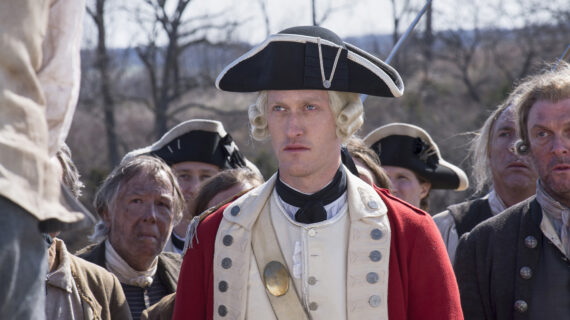
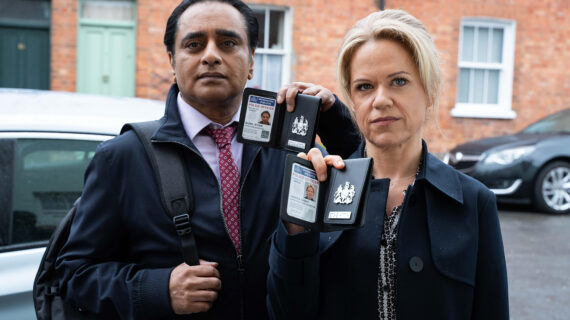
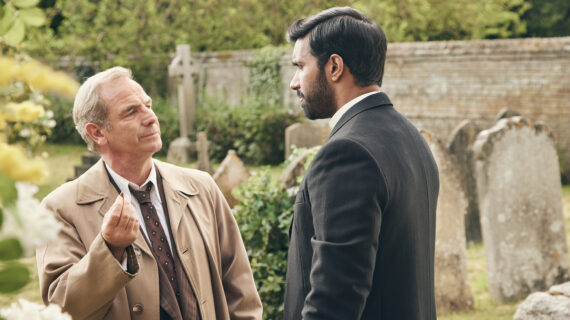
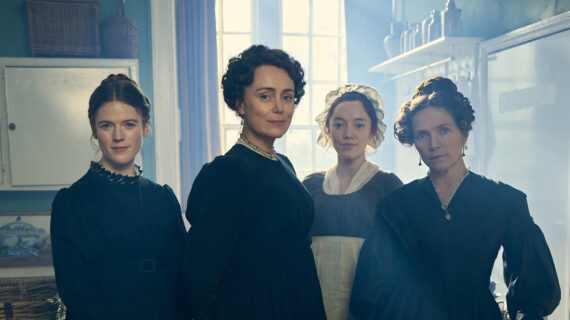

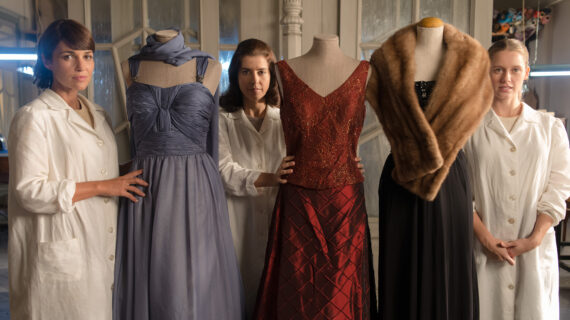
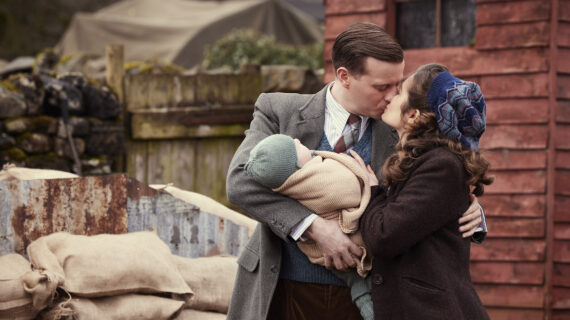
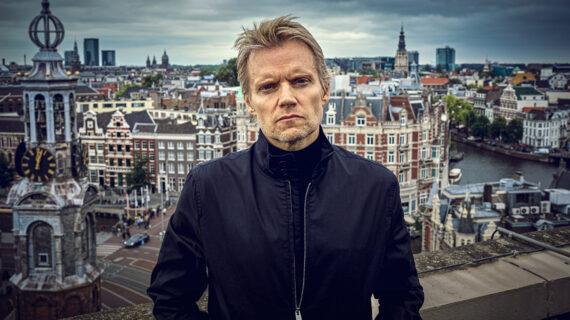
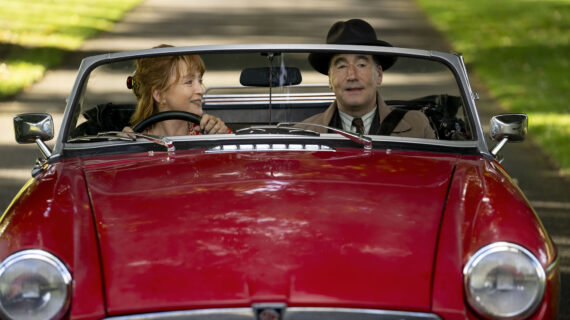
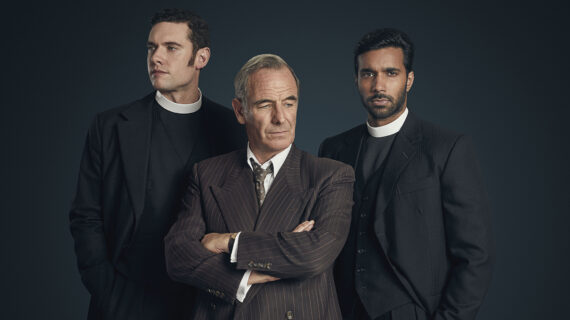
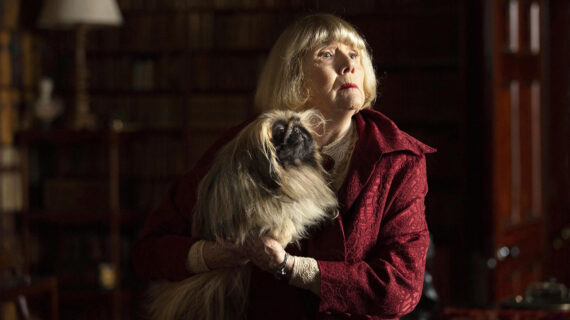

Follow Us